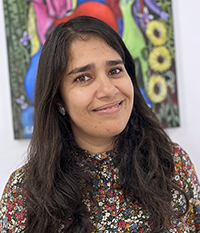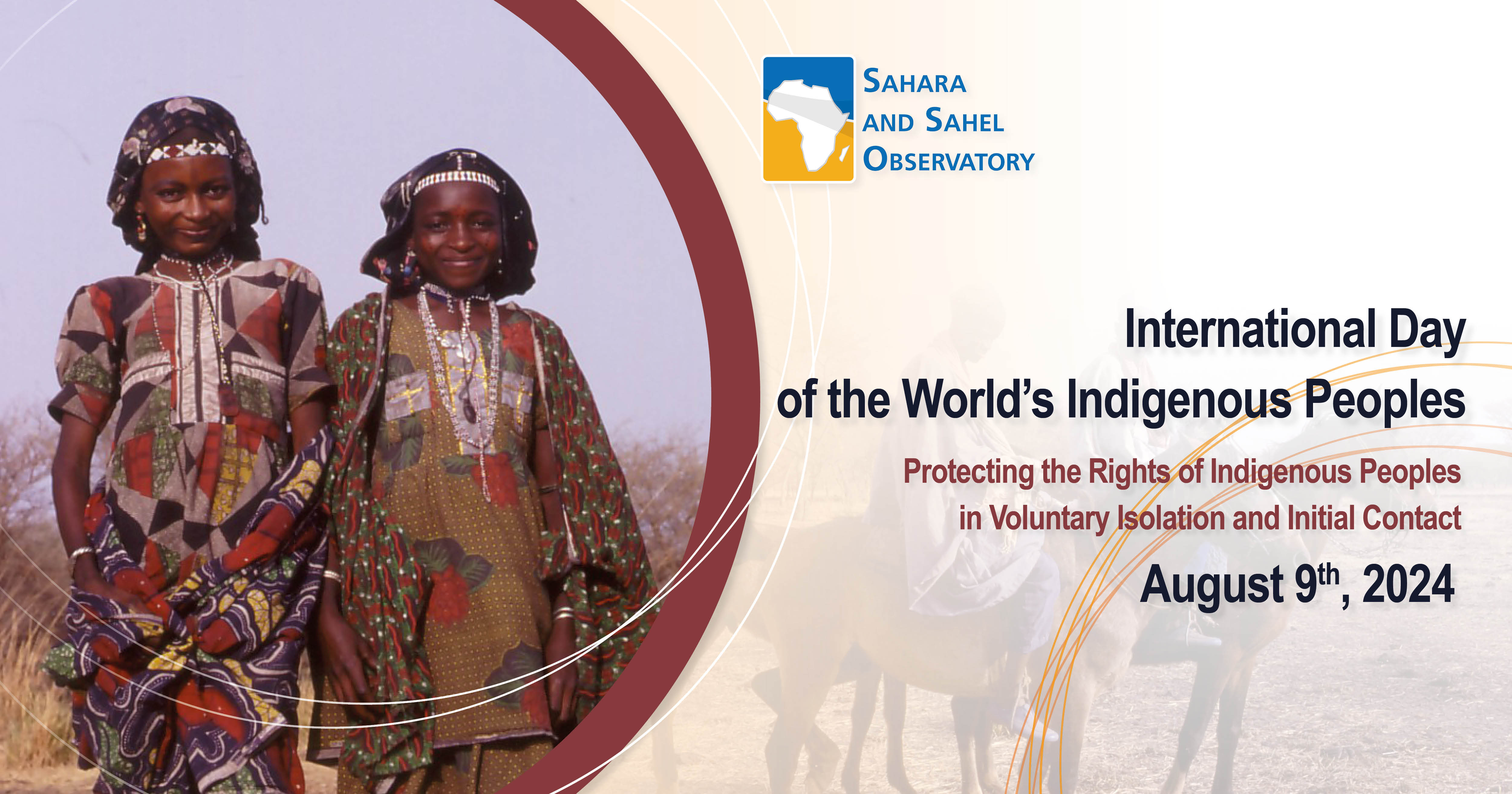International Day of the World's Indigenous Peoples, August 9, 2024

Mrs Olfa Karous
PhD-Engineer in agricultural sciences,
Sahara and Sahel Observatory
Every August 9, the International Day of Indigenous Peoples is a call for reflective considerations, a reflection of pure intuitions and deep meditations on the link we have with nature. On this day, let us honor those who, through time and space, have preserved ancient wisdom and a sacred connection with the natural world. Most indigenous peoples view the environment with a completely different eye than modern civilization. For them, it is not merely a collection of animate and inanimate matter subject to physical or biological laws, but a living and interconnected Whole that encompasses all Human beings who must live in harmony with it. Understanding the interdependence of all life and recognizing the reliance of humans on the proper functioning of all-natural elements, are central to the Indigenous worldview. Furthermore, these communities do not consider consciousness and intelligence as specific to humans, but rather see the fundamental value of the animal world and the plant world where humans are an integrated part of this “Whole”.
In Africa, the connection between Man and nature is like a journey through eons of wisdom. This continent, home of age-old traditions, celebrates the deep union between humanity, Land and the cosmos. Across its extensive landscapes, from abundant forests to vast savannahs, indigenous peoples reveal unique and respectful visions of their environment, embodying an indispensable and timeless balance.
In the heart of the equatorial forests of Central Africa, the Pygmies, one of the oldest peoples on the continent, live in perfect harmony with their environment. True to an age-old way of life, their central cosmovision speaks a philosophy where human beings are integrated into a larger “Whole”. They do believe that nature is not a property but a living entity with which they maintain sacred ties. Each tree and animal are a member of their extended family, and they live through relationships of fairness and respect rather than domination.
On the shores of Lake Eyasi, south of the Ngorongoro highlands in Tanzania, the Hadzabes, one of the oldest known hunter-gatherer peoples, live with timeless devotion. They sing the stories of Land and have an anti-materialistic vision of nature. They nourish an exceptional harmony with their environment: free from agriculture, stockbreeding, rules and hierarchy, they take only what they need and keep moving so that nature regenerates. The temporary shelters they take blend in the landscape and decompose naturally, while they take from the springs the amount of water they actually need. These peoples truly demonstrate a deep respect for the environment and a willingness to maintain ecological balance.
In the Mau forests of Kenya, the Ogiek live in harmony with the ancient trees they worship as ancestors, and the forests as sanctuaries. Their worldview is governed by firm rules that prohibit tree cutting and regulate the use of the resources. They practice rituals to thank the spirits of the forest and are careful to only take what is necessary, using gathering techniques that ensure the regeneration of the plants.
True heroes of conservation, these peoples, representing approximately 476 million people around the world, own, manage or occupy a quarter of the planet's land, sheltering 80% of the world's biodiversity. They attach great importance to the management, sharing and conservation of the resources and demonstrate deep respect for the environment. Their knowledge transcends simple traditions and becomes living and dynamic tools, essential for the sustainable management of natural resources.
Today, bio-cultural approaches are increasingly recognized for their ability to promote the interconnection between biodiversity and indigenous knowledge. The United Nations Convention on Biological Diversity (CBD) calls for the integration of these approaches as an effective way to put a halt to the loss of global biodiversity and promote sustainable management of natural resources.
Despite indigenous peoples’ insignificant contribution to environmental degradation, very often times, they are hit hardest by the consequences of the intensive exploitation of natural resources. Extractive activities, such as large-scale logging, industrial agriculture and mining projects, threaten not only their rights but also the ecosystems vital to their livelihoods. Besides, indigenous peoples are still being marginalized, despite the halfhearted efforts made by international bodies, such as the Climate Funds which, in the implementation of their projects and programs, call for the full observance of their rights. In fact, 86% of these populations work in grey economy, without adequate protection and are therefore three times more likely to live in extreme poverty. On average, they earn 18.5% less than other global population groups. This situation is getting worse in Africa due to the lack of recognition of collective land rights and associated protections. Although texts such as the United Nations Declaration on the Rights of Indigenous Peoples do exist, the level of implementation falls dramatically short of what is needed, making these communities particularly vulnerable to the harmful effects of deforestation, infrastructure expansion and natural disasters.
The traditional knowledge of indigenous communities provides responses that are adapted to these challenges. Passed down from generation to the other, they encompass oral traditions, devotion to places, memories, spirituality and a distinctive vision of the world. This knowledge is translated through a complex set of values, beliefs, ceremonies, traditional medicines and specific social practices and rituals. According to UNESCO, these skills are usually more refined than modern scientific approaches and make it possible to grasp environmental variations and adjust practices in response to climate change. Incorporating this knowledge into large-scale projects improves natural resources management strategies. Indeed, working directly with indigenous peoples is a unique chance for you to benefit from an in-depth understanding of local ecosystems, thus strengthening their resilience and the sustainability of initiatives. Their expertise, based on careful observation and deep respect for the environment, provides solutions that are both adapted and sustainable.
For these solutions to be truly effective, it is important to fully involve indigenous communities in decision-making processes. Their active participation in political and environmental forums ensures equitable representation and respects their own governance structures.
Today, as every day, the world must defend the right of indigenous peoples to shape their future in peace and dignity.
